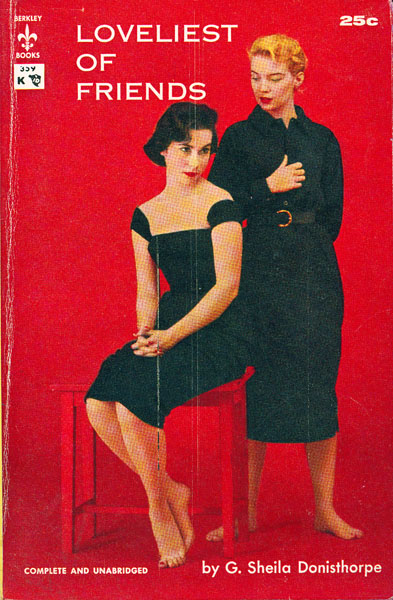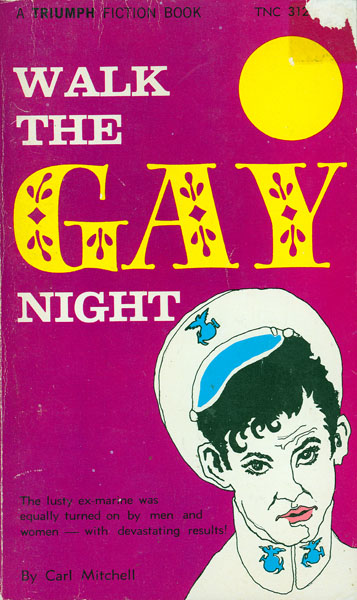Women's & Gender Studies: Special Collections & Archival Resources
Special Collections & Archival Resources
-
Archives of Sexuality and Gender: LGBTQ History and CultureA collection of primary source material for the historical study of sex, sexuality, and gender. With material dating back to the sixteenth century, researchers and scholars can examine how sexual norms have changed over time, health and hygiene, the development of sex education, the rise of sexology, changing gender roles, social movements and activism, erotica, and more.
Access is restricted to current students, faculty, and staff of the University of Saskatchewan, and walk-in users, for educational, research, and non-commercial personal use. Systematic copying or downloading of electronic resource content is not permitted by Canadian and international copyright law.
-
The ArQuivesThe ArQuives (formerly known as the Canadian Lesbian and Gay Archives) has a mandate " to acquire, preserve, organize, and give public access to information and materials in any medium, by and about LGBT people, primarily produced in or concerning Canada." The ArQuives also maintains non-archival collections, which include a research library, international subject files, and an international collection of queer periodicals.
-
Queer Pasts
A collection of primary source exhibits for students and scholars of queer history and culture. The database uses “queer” in its broadest and most inclusive sense, embracing LGBT topics as well as other sexual and gender formations that are queer. It prioritizes under-represented histories and encourages critical reflections on the archives used and materials presented.
Trial runs Feb. 24, 2025 - Mar. 26, 2025.
-
USask Library and Archival Resources: Sexual and Gender DiversityA guide to the resources available in the University Archives and Special Collections on Gender and Sexual Diversity, including the Neil Richards collection, which includes the records of many gay and lesbian individuals and organizations, magazines and newsletters published in LGBT communities, collections of lesbian and gay pulp literature, documentation about theatrical cross-dressing, and novels and nonfiction published before the Stonewall Riots of 1969 and the birth of the modern Gay Rights movement.
-
Atria - Institute on Gender Equality and Women's History"Atria is an information center and archive where the history and cultural heritage of women, their organizations and their movements are collected, preserved and made available for study." This institute results from the merger of "Aletta, Institute for Women’s History" and "E-Quality, Information Centre for Gender, Family and Diversity Issues".
-
British and Irish Women's Letters and Diaries: 1500 to 1950Primary sources, such as diaries and letters, written by 500 women spanning several hundred years. Includes author biographies and an annotated bibliography of sources.Access is restricted to current students, faculty, staff, and alumni of the University of Saskatchewan, and walk-in users, for educational, research, and non-commercial personal use. Systematic copying or downloading of electronic resource content is not permitted by Canadian and international copyright law.
-
Defining Gender, 1450-1910A collection of original documents relating to Gender Studies, sourced from libraries and archives around the world. It has five thematic sections: Conduct and Politeness, Domesticity and the Family, Consumption and Leisure, Education and Sensibility, The Body. Contains material from the John Johnson collection of ephemera, from boy's public schools and female women's colleges, diaries, periodicals, commonplace books, novels, ballads, pamphlets, poetry, etc.Access is restricted to current students, faculty, staff, and alumni of the University of Saskatchewan, and walk-in users, for educational, research, and non-commercial personal use. Systematic copying or downloading of electronic resource content is not permitted by Canadian and international copyright law.
-
Herstory: An ExhibitionThe Herstory web site, a University of Saskatchewan digital collection, samples the pages of Herstory: The Canadian Women's Calendar from 1974 to 1995.
-
The Lesbian Herstory Archives"Collects and preserves any materials that are relevant to the lives and experiences of Lesbians: books, magazine, journals, news clippings (from establishment, Feminist or lesbian media), bibliographies, photos, historical information, tapes, films, diaries, oral histories, poetry and prose, biographies, autobiographies, posters, graphics and other memorabilia."
-
North American Women's Letters and Diaries: Colonial to 1950A collection of over 150,000 pages of published letters and diaries of women writing in North America.Access is restricted to current students, faculty, staff, and alumni of the University of Saskatchewan, and walk-in users, for educational, research, and non-commercial personal use. Systematic copying or downloading of electronic resource content is not permitted by Canadian and international copyright law.
-
ONE National Gay & Lesbian Archives"ONE National Gay & Lesbian Archives is the oldest active Lesbian, Gay, Bisexual, Transgender, Queer, Questioning (LGBTQ) organization in the United States and the largest repository of LGBTQ materials in the world. Founded in 1952, ONE Archives currently houses over two million archival items including periodicals, books, film, video and audio recordings, photographs, artworks, organizational records and personal papers."
-
ORLANDO: Women's Writing in the British Isles from the Beginnings to the PresentBiographical entries on over 1000 writers, more than 850 of them British women. Also includes thousands of dated items representing events and processes in the accounts of these writers, but also in history, science, medicine, economics, the law, and other contexts.Access is restricted to current students, faculty, and staff of the University of Saskatchewan, and walk-in users, for educational, research, and non-commercial personal use. Systematic copying or downloading of electronic resource content is not permitted by Canadian and international copyright law.
-
Women and Social Movements: in the United States, 1600-2000A collection of documents, images, and links to other websites, covering the history of women in social movements in the United States.Access is restricted to current students, faculty, staff, and alumni of the University of Saskatchewan, and walk-in users, for educational, research, and non-commercial personal use. Systematic copying or downloading of electronic resource content is not permitted by Canadian and international copyright law.
-
Women Writers Online
Collection of early womens writing in English, published by the Women Writers Project at Northeastern University. It includes full transcriptions of texts published between 1526 and 1850, focusing on materials that are rare or inaccessible.
Access is restricted to current students, faculty, staff, and alumni of the University of Saskatchewan, and walk-in users, for educational, research, and non-commercial personal use. Systematic copying or downloading of electronic resource content is not permitted by Canadian and international copyright law.
The University of Saskatchewan's main campus is situated on Treaty 6 Territory and the Homeland of the Métis.
© University of Saskatchewan
Disclaimer|Privacy
- Last Updated: Sep 5, 2025 9:20 AM
- URL: https://libguides.usask.ca/wgst
- Print Page




